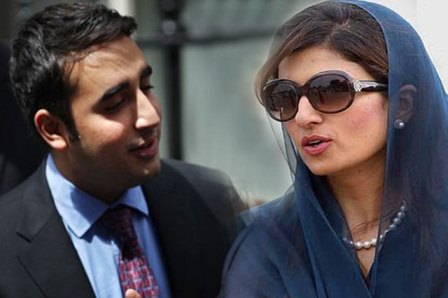
Islamabad, September 26: It's a story that's got all the makings of a huge political scandal. A rumoured romance between Bilawal Bhutto Zardari and the attractive and much-toasted foreign minister, Hina Rabbani Khar, has got all of Pakistan talking. And it's reportedly prompted her husband to seek her phone details.
Officials denied the affair, but some privately confirmed that Khar's millionaire husband Firoze Gulzar on Tuesday submitted an application to the Federal Investigation Agency for subscriber details and call data record of two “suspected” numbers.
Discussed in hushed tones in Islamabad for the past couple of weeks, the romance came out in public following a story in a Bangladeshi weekly tabloid, Blitz. According to the article, the 24-year-old chairperson of the Pakistan Peoples' Party and the minister, 11 years older, are in love and plan to settle in Switzerland.
President Asif Ali Zardari, it says, is vehemently opposed to his son's eagerness to marry the mother-of-two. He fears such a move would jeopardize Bilawal's political career and spell doom for the party.
The report claims Zardari caught the two in a compromising position at his residence and in an effort to break them up, unsuccessfully used government machinery against Gulzar's business interests. It also says Khar, who reportedly wants to end her marriage, sent Bilawal a birthday card with a hand-written message: “The foundation of our relation is eternal and soon we shall be just ourselves.”
The article has been denied by various government officials. But Gulzar's suspicions seem to have given credence to it. The FIA confirmed more phone numbers were being looked into but did not go into specifics.






Comments
Add new comment